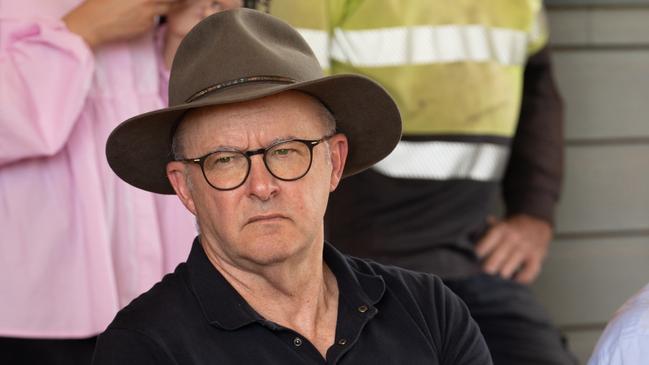‘No’ vote on Indigenous voice would be bad look, says Anthony Albanese
Rejecting the voice referendum would hurt Australia’s reputation on the international stage, Anthony Albanese has warned.

Rejecting the voice referendum would hurt Australia’s reputation on the international stage, Anthony Albanese has warned, as the Prime Minister stepped up his advocacy for the proposed change to the Constitution.
Mr Albanese also took a thinly veiled swipe at Opposition Leader Peter Dutton, comparing the current debate about the potential impacts of the voice to the ultimately unfounded concerns that were aired before the federal apology to the Stolen Generations.
Speaking on 2GB radio on Tuesday, just days after Mr Dutton released a letter calling on the government to clarify more than a dozen questions about how an Indigenous voice would operate, the Prime Minister said the result of the vote would not just be felt within Australia.
“It would send a bad message re reconciliation and it would also send a bad message in the way Australia is perceived internationally,” Mr Albanese said.
“This is an opportunity to unite the nation, the chance to move Australia forward together to show that we’re a mature nation.”
Amid ongoing calls from the Opposition for more detail about the functions and implications of the voice to be made public, Mr Albanese noted that the fears expressed in the lead-up to Kevin Rudd’s apology to the Stolen Generations in 2008 had proved unwarranted.
Mr Dutton famously boycotted the national apology and walked out of parliament at the time, something he has since admitted was a mistake.
“Even those who opposed the apology now say that that (walking out) was the wrong thing to do, and this will be the same,” Mr Albanese said.
“I’m very confident that once this occurs with the support of the Australian people that they will see that we’re stronger as a nation as a result of this.”
The latest concern expressed about the voice came from former Liberal prime minister Tony Abbott, who warned that the body was a step towards the sort of co-governance model taking shape in New Zealand with the Maori people.
“I think we need to have a very, very long hard look at this before we go down this path because … changing the Constitution is for keeps and that’s why it should never be done lightly,” Mr Abbott said.
Mr Albanese said it was clear that the voice would only be a voice of consultation on matters that affect Aboriginal and Torres Strait Islander people and would not be able to make decisions or pass laws.
“I don’t question the fact that he is someone who cares about the gap which is there with Aboriginal and Torres Strait Islander people. The fact is that this is not a co- governance model at all. It’s subservient to the parliament,” Mr Albanese said.




To join the conversation, please log in. Don't have an account? Register
Join the conversation, you are commenting as Logout